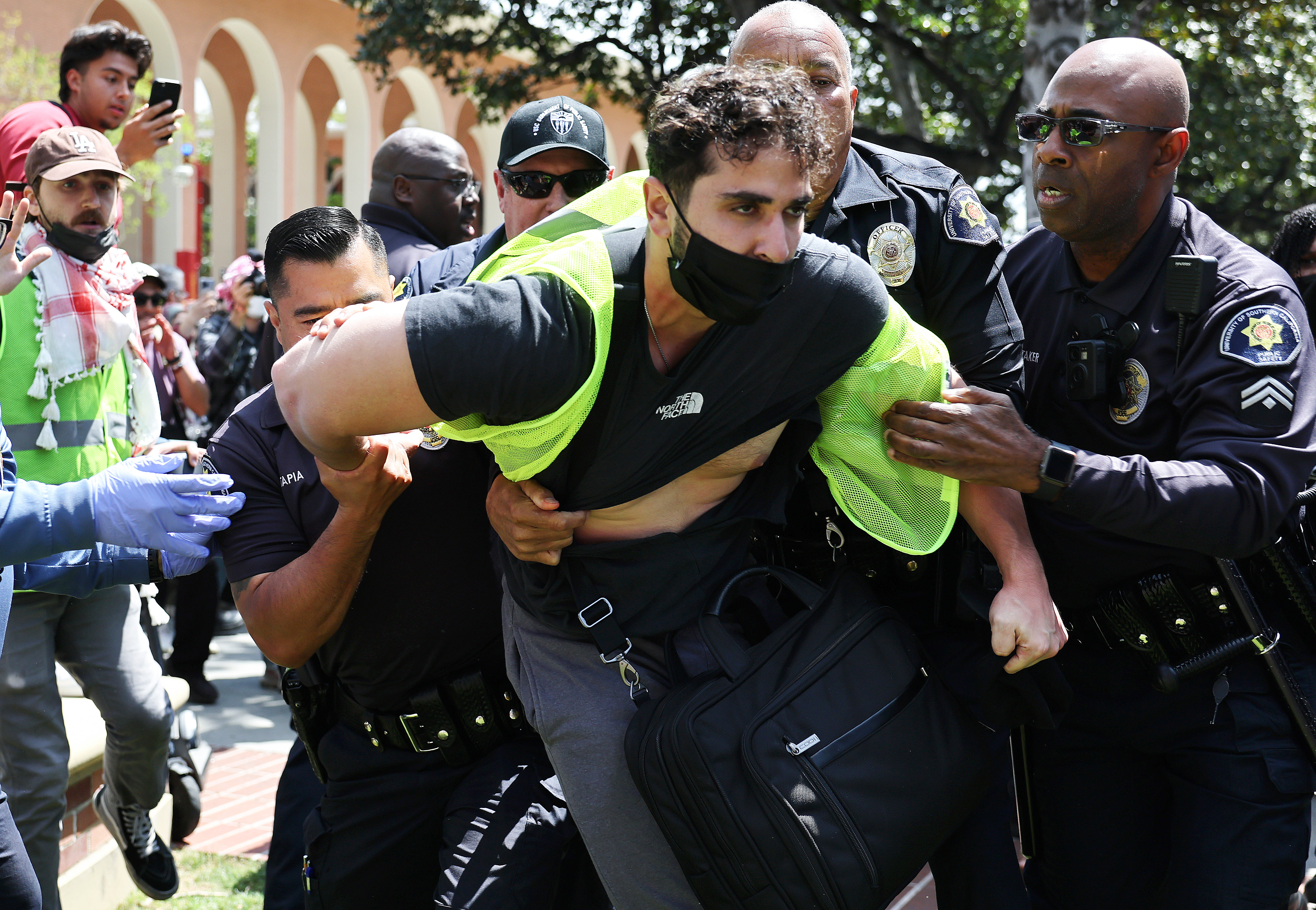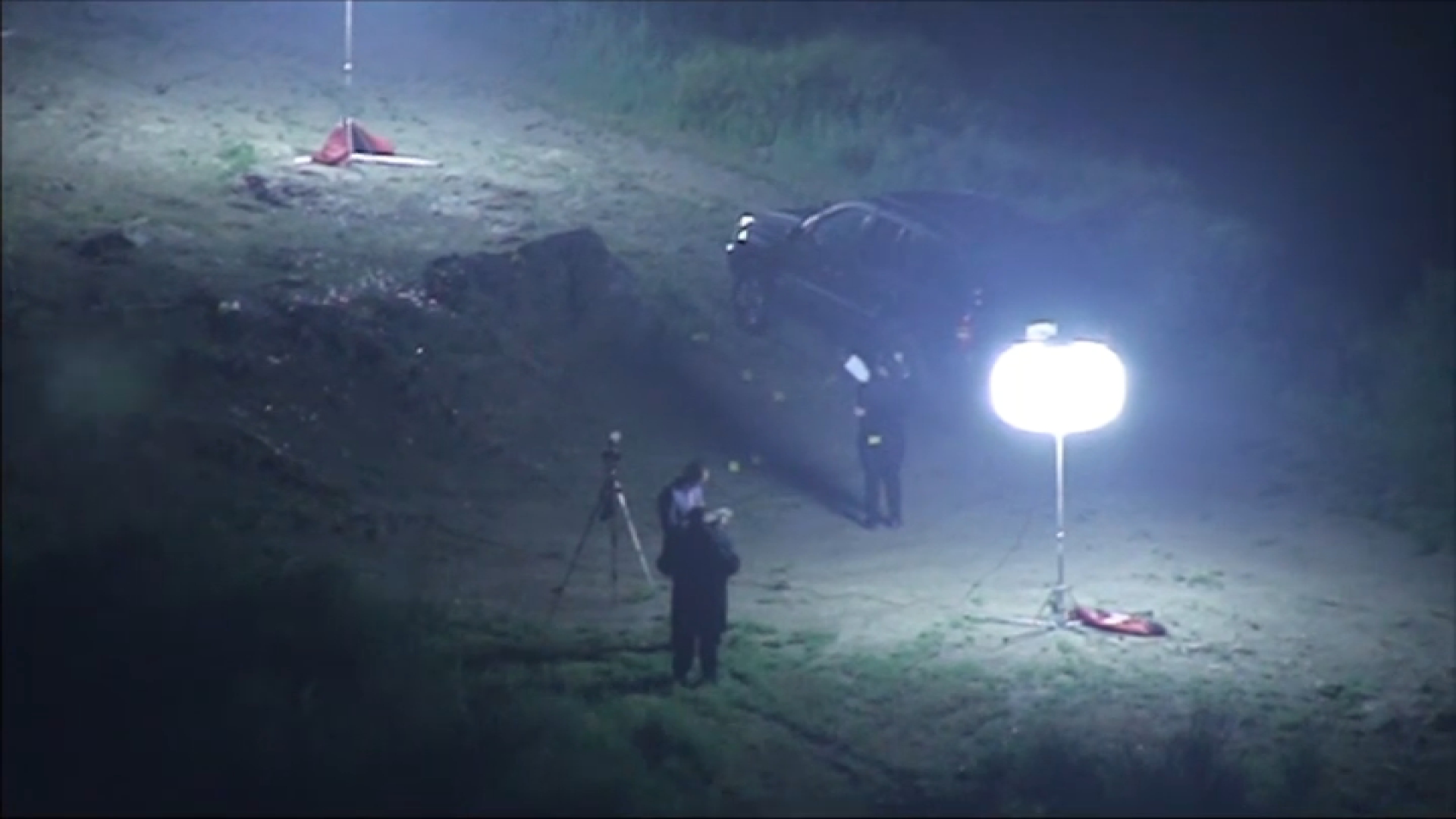When 40 Master of Business Administration students from USC's Marshall School of Business signed up for their class trip to Cuba in the fall, they had no idea they’d be going just a week after the Obama administration would announce fundamental changes in the country’s policy toward the island nation.
"I saw it more as a green field, a business development opportunity," USC MBA student Mike Schwartz said. "Where if you can find some entrepreneurial opportunity there, you’ve got a shot."
Schwartz said they witness that entrepreneurial spirit firsthand in the private home of a Cuban grandmother.
"And it’s the best food you can get, we had incredible meals," he said. "And the you look in the kitchen, behind the curtain, and it’s literally an old lady and a small little stove, you know, and there’s 15 people having these huge meals and everyone’s laughing and there’s a Cuban band."
He said that’s one of the things the students noticed — how the Cuban people are able to get consumable goods from friends and relatives across the Florida Straits, to then use to their benefit on the black market, serving tourists in their own homes.
"It’s a pretty good analogy for the society there because they’re so restricted with so few consumable goods, that they’ve had to make do with whatever they can," he said.
The group left LAX on Dec. 28, visited sugar mills, tobacco field, the famous Havana Club rum factory; they stayed at an all-inclusive hotel in the resort town of Varadero Beach to experience the way the country likes to entertain tourists; and they even took part in an impromptu baseball game with children near a small village.
Schwartz said that while speaking with some of the business managers it felt to him like they were all eager to speak highly of the Cuban government, while expressing hope for how their business could flourish with more engagement with the U.S.
News
Top news of the day
"They are open for change," he said. "They know change will happen incrementally but there is economic opportunity and there is a will for something more, from the ground up."
USC MBA student Natasha Walker said she was eager to go to Cuba so much that the moment she got word the class would be going, she responded with a resounding "yes," only to find out she was the second person on the list to go.
"Oh, there’s so much mystique behind it," Walker said. "It’s a country not traveled to by a lot of people because of the embargo, it has history, 500 years old. Being able to go and see that in person and being able to experience that was a once in a lifetime opportunity."
Walker said her jaw dropped when she watched Obama’s announcement on TV just before the trip.
"This is happening in my lifetime? 50 years! An entire generation. It just made it that much more poignant," she said.
Walker said she felt that poignancy again as she boarded her flight from Miami, standing in line, checking her luggage and then finally stepping foot on what she describes as a completely different part of the world.
"To see what Cuba has achieved without U.S. influence is remarkable," she said. Specifically, Walker points to the free healthcare system in Cuba and the education system that boasts a 98 percent literacy rate.
She said that often during their site visits and lectures, locals would apologize for their English, only to speak clearly with only a slight accent.
But Walker adds that lack of opportunites for the educated appeared to be the source of frustration on the island.
"I can see their frustration especially because they are so well-educated but the job opportunities that they have do not meet their skill level," she said.
She noticed this particularly when the group visited the economic sector of the Mariel Port, where she says very few workers appeared to have any incentive to better themselves, working instead for the minimum wage they’ve been offered, regardless of their skill set.
Schwartz said moving forward now, considering the sometimes violent history that lead to Cuba’s isolation from the U.S., could take time.
"The government nationalized everything," he said. "They took homes and moved people around and basically did whatever they wanted with dissenters. I don’t know how you balance that moving forward."
USC Marshall School of Business professor Dr. Carl Voigt has been leading the group of students to Cuba annually since 2000, with the exception of a brief period after 2008 when the Bush administration further restricted travel to the island.
This trip, he said he saw a mix of hope and apprehension.
"On the one hand they’re really super excited that this time it’s the president saying it," he said of the policy change. "On the other hand, they’re waiting to see what’s really going to change."
Voigt said there’s no doubt the Cuban people and its government are willing to engage with the United States, but said the economic model needs to be updated.
For one, he points out that Cuba uses two currencies — the Cuban peso for the Cuban people and the Convertible, or "Cuc" for business transactions — a difference of about 24-to-one, pesos-to-cuc.
"Cuba’s one of the most difficult places to understand the economic model," he said. "With people earning $20 a month, how to do business there, what works, what doesn’t."
That’s why he said he pushed USC to consider the program so many years ago.
"Cuba offers probably one of the last chances for students to see what a planned economy looks like," he said.
Part of the trip included considering what Cuba has to offer to California. Voigt said the biotech industry on the island is booming and could use a boost from California’s Silicon Valley; he points to the need for consumable goods in agriculture, a feast for California’s Central Valley; and when it comes to tourism, Voigt says tourists are going to want wine when they dine.
But while the group visited at an opportune time to learn about the economics of Cuba, Voigt said they also went — for the first time — with true hope that change is about to happen.
"At the government level, people are talking about the future as if it’s really going to happen," he said.
And yet Voigt and his students still saw the decay of what’s left of the island, the vast difference between those that have and those that do not.
"There’s still a lot of sadness," Voigt said, considering this latest trip from his first in 2000. "A lot of hope, but a lot of sadness."



